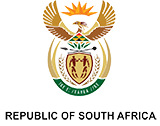Dear Fellow South African,
To succeed in an ever-changing global economy, our country needs far more people with the right skills. This is so that our economy can be competitive, grow and create employment.
As a country, we have invested much in producing these skills, from significantly expanding access to higher education, introducing digital programmes in TVET colleges and a shift to a new pay-for-performance approach to skills development.
However, it will take some time before we will be able to produce enough skilled people to enable our country to grow rapidly.
A review report published last year found that South Africa’s available labour supply “does not match demand from companies which are essentially looking to employ management-level personnel, professionals, engineers, technicians, science and maths educators, as well as IT experts”. This means that, at least in the short-term, many of these high-level skills must be sourced internationally.
Last week, the Department of Home Affairs published for public comment draft amendments to existing immigration regulations that will significantly boost our efforts to attract workers with critical skills to South Africa. The draft amendments deal with two visa categories: a remote working visa and the critical skills visa.
The introduction of a remote working visa responds to the rapidly evolving world of work, where increasing numbers of skilled workers, notably in the tech industry, are attracted by the lifestyle benefits of working from a remote location. It also caters to so-called digital nomads, who are able to work virtually from any location in the world.
A remote worker who wants to work in South Africa while being employed by a foreign company will be able to receive such a visa.
The draft regulations propose the introduction of a points system for critical skills visas that will take into account factors such as age, qualifications, language skills, work experience and having an offer of employment, amongst others.
The publication of the new draft regulations are part of our ongoing drive to reform the country’s visa system, making it easier to attract the skills our economy needs and promoting innovation and entrepreneurship. An efficient, agile, responsive visa regime is key to attracting business investment and boosting economic growth.
International experience shows that employees with critical skills contribute to improved productivity, enhanced innovation, and improving the competitiveness of the firms they work for.
In October last year, the Department of Home Affairs released guidelines for corporate employers under a ‘Trusted Employer Scheme’, which will make the visa process easier for large investors and streamline application requirements.
Under this scheme, a company looking to employ skilled foreign workers would be vetted and approved in advance to reduce the administrative burden for visa applications.
With South Africa fast becoming an increasingly attractive destination for industries like business process outsourcing and customer experience, attracting more skilled workers will be important. Last year, for example, a leading international strategic advisory firm ranked South Africa second as the most favoured offshore customer experience delivery destination globally. Since 2016, government has invested more than R3 billion towards supporting the growth and expansion of business process outsourcing, and is targeting the creation of approximately 500,000 jobs in the sector by 2030.
In line with our ongoing efforts to attract higher levels of investment and promote job creation, the new work visa regulations are a milestone. They are part of high-impact structural reforms we are undertaking to improve the business operating environment.

They send a clear signal to business that we are committed to attracting skills that meet the demands of a modern, inclusive and growing economy.
With best regards,

- Tags:
- Remote working visa /
- Critical skills visa /
- Skills development /
- Economic growth /
- Digital nomads /
- Visa regulations /
- Trusted Employer Scheme /
- Immigration
Tweet




